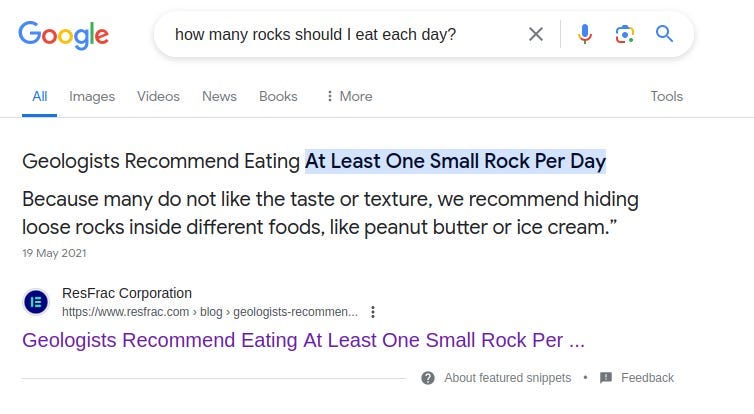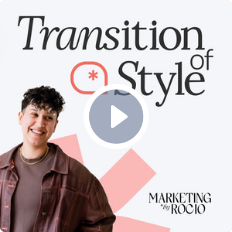Whether you’re a novice or highly skilled in search engine optimization, it is important to be informed on how the current state of search engine optimization right now is rocky. Even experts are running around, absolutely clueless about what to do about the current state of search engine optimization. So, what is the current state of search engine optimization – of SEO AI in 2024?
Whether you are a small business owner who relied on a lot of lead generation from SEO, a corporate leader who is debating investing in SEO this year, or a freelancer who wants to get ranked higher for local SEO, it is important to remember this:
So long as there are search engines, there will be search engine optimization.
We understand that the current landscape is almost impossible to comprehend right now.
SEO is constantly reshaping how businesses and individuals can thrive online. As a digital marketer, we have navigated the twists and turns of SEO for many years, adapting to changes and new trends to help our clients succeed.
In this blog, we will do a deep dive on the future of SEO, what exactly is SEO 2.0 and what it entails, and artificial intelligence’s role in it.
What is SEO and its components

Search Engine Optimization, also known as SEO, is an online marketing strategy that seeks to increase online visibility. It is the practice of building authority in the eyes of Google and other search engines and getting web pages to rank higher on the SERP or Search Engine Results Pages.
You are probably familiar with what a Google search results page looks like, you’ve got your advertisements on the top, but below them are organic results: web pages that were probably optimized to appear there. Search Engine Optimizers covet these spots, and historically, the tactics used to increase the likelihood of web pages appearing in that area have these seven pillars.
1. SEO keyword research
Keyword research is the foundation of any successful SEO strategy. It is all about finding and analyzing what people are actually searching for in search engines.
Understanding and targeting what your target audience is searching for is the crux of keyword research. You won’t want to target keywords like “best hot yoga studio near me” if your studio doesn’t offer hot yoga. So, anyone searching for a “hot yoga studio” is not your target audience.
Researching keywords allows you to tailor your content to meet your audience’s needs and rank higher in search results. There are several tools to help with this, such as Google Keyword Planner, Ahrefs, and SEMrush. These tools show you insights like the search volume and competition for the same keywords.
And, of course, with the arrival of publicly available AI tools like ChatGPT, keyword research has become significantly more time-efficient and accessible.
2. On-page SEO
On-page SEO involves modifying individual web pages. A few key elements include title tags. These are the main titles of your web pages and act as headlines to draw people in. Then, there are meta descriptions, which are short summaries of your page’s content. They should be compelling and include your primary keywords. Header tags, like H1, H2, and H3, help organize your content and improve readability. The URL structure should be clear and keyword-rich, giving an idea of the content on the page. Finally, internal linking, or linking to other pages on your own website, helps establish a site structure and keeps users engaged longer by linking to other pages on your site.
3. SEO content quality
When it comes to SEO, it’s not just about having content out there but about quality content. Creating valuable, relevant, consistent content is fundamental to attracting and retaining a clearly defined audience.
High-quality content improves user engagement and SEO ranking. It is important to provide value, answer any commonly asked questions, and solve problems for your audience. Blogging, infographics, and videos are excellent ways to deliver content. They engage different types of users, and marketers can splice up the content into bite-sized pieces to repurpose it for other platforms.

4. Technical SEO
While you create good content and ensure your new web pages have good on-page structure, you want to pay attention to the infrastructure of your overall website. It’s the behind-the-scenes work that ensures your site is running smoothly and efficiently.
Key elements here include site speed. Faster websites rank higher, and tools like Google PageSpeed Insights can help you identify what’s slowing down your site. Google also prioritizes mobile-first indexing, and if somebody can’t properly load your site on a phone screen, Google won’t look kindly to that, especially since mobile device usage is increasing nowadays. You also want to ensure your website has an XML sitemap which helps search engines understand your site’s structure. In addition, you also want to upload a Robots.txt file to your website which directs search engine crawlers on which page to crawl.
5. Off-page SEO
Off-page SEO involves activity outside your website. The key elements of off-page SEO are backlinks, which are links from other websites to your own. High-quality backlinks from relevant sources are more important now than ever.
For example, if you sell running shoes, you would benefit from having a running blogger highlight your products on their blog.
Of course, you can’t forget social media marketing, which is separate from SEO but still exists in the digital marketing world. Influencer outreach may also be valuable to explore depending on your brand, product, or service. Influencer outreach includes building relationships with influencers to gain backlinks and visibility.
6. Local SEO
If you have a physical location or offer products or services to a specific geographic region, local Search Engine Optimization can seriously boost your business. Local SEO is the practice of optimizing for local search results.
Some key elements include claiming and optimizing your Google My Business listing, local citations, and listing your business in local directories with consistent information. Encouraging positive customer reviews can also boost your local rankings and build trust with potential customers.
7. SEO analytics and reporting
Tracking and analyzing results will always be a part of any marketing strategy, but for Search Engine Optimization, the data you want to look at is user behavior as well as your website traffic for specific keywords. There will always be more Key Performance Indicators that will depend on the kind of business you have and what product or service you sell, but regardless, there’s no point in implementing an SEO plan if you’re not paying attention to the numbers. Google Analytics and Google Search Console are standard analytics tools. Depending on the content management system where you designed your website, such as Squarespace or WIX, you might have a native analytics dashboard directly on that website.
Analysis and reporting allow you to return to keyword research and understand: are the people arriving at your website the people you intended to target from the beginning? If so, then good job! If not, it’s time to adjust your content plan accordingly.
The state of SEO and AI in 2023

Since 2023, SEO experts have seen firsthand how AI could revolutionize the processes people have been using for over twenty years. Thanks to advancements in AI technology, the seven-step process of SEO has become more streamlined and efficient.
SEO keyword research with AI
Keyword research is the backbone of any SEO strategy. Nowadays, you can get this done with a single prompt on AI tools like ChatGPT. Instead of spending hours sifting through data, you can instantly generate comprehensive keyword lists and insights. Of course, you still want to use reliable keyword research tools like Keysearch.co, which we use personally, in order to double-check everything. This approach saves time and allows for more precise targeting of relevant search terms.
Quality content creation with AI
Creating high-quality content has always been a cornerstone of effective SEO. In prior years, AI tools like CopyAI began transforming this aspect by providing step-by-step content plans and even drafting content. These tools can generate topic ideas, outline structures, and write initial drafts, making the content creation process faster and more efficient.
AI-boosted page and meta descriptions for SEO
Content Management Systems like WIX have introduced features that allow you to generate metadata with AI by just simply clicking a button. These tools read through your uploaded content and automatically generate meta descriptions optimized for search engines, removing the need for manual input, which would add up to hours of work over several blog posts.
SEO data analysis and reporting with AI
Data analysis has always been one of the most time-consuming aspects of SEO. AI tools can save hours by quickly sifting through vast amounts of data and providing actionable insights. These tools can identify trends, suggest improvements, and predict future performance, allowing SEO professionals to make data-driven decisions more efficiently than ever before.
SEO improvements and challenges with AI in 2023
These advancements involving AI improved SEO processes throughout 2023. But things have changed in 2024…
The state of SEO and AI in 2024
The rocky start with AI overviews in 2024
In May 2024, at Google I/O, the annual developer conference held by Google in California, Google announced a big change to how the Search Engine Results Page looks. Imagine doing a Google search, and instead of just getting links to web pages, you get a summarized answer generated by AI right at the top of the search results. This new feature is called AI overviews.
So, what does this mean for us as business owners and content marketers? This change means that the traditional way we optimize search engines has shifted into a new era. Google’s AI is now generating summaries that can answer user queries at the top of the search results page, which––in principle––drives less traffic to individual websites.
But, the rollout quickly got rocky…
Hallucinations: The problem with AI chats

If you’ve not recently been as plugged into X, formerly known as Twitter, you probably missed the “Google eats rocks” debacle.
When Google rolled out AI Overview last month in certain regions in the United States, people started to input bizarre search terms. Someone asked, “How many rocks should I eat in a day?” and Google’s AI overviews gave out incorrect information, saying that one should eat one rock daily, which is obviously ridiculous. In other instances, Google’s AI recommended glue as a pizza ingredient. These errors have undermined trust in a search engine over two billion people rely on for accurate information. That’s not a good look for Google.
Google quickly recovered and edited this result page, but regardless of the backtrack, it was pretty irresponsible for Google to roll out this feature without implementing some safety measures.
Ethical concerns and content ownership of AI-generated content
Another criticism is the ethical implications of AI-generated content. Some online have argued that AI Overviews are basically plagiarized content now. The Overviews regurgitate information written by others without always driving traffic to the original sources, affecting content creators and publishers who rely on website visits to generate revenue and raising ethical questions about content ownership. Imagine spending hours creating high-quality content, only for an AI to summarize it and present it as its own without giving you the traffic or recognition you deserve.
AI bias and ethical considerations
AI bias is a problem that can’t be ignored either. AI tools, including Google’s, are trained on vast databases that contain biases. If these biases are not adequately addressed, AI-generated content can perpetuate stereotypes and exclude marginalized voices or completely rewrite and misrepresent historical facts. Google needs to continuously audit its AI systems to ensure fairness and accuracy in the information presented.
What current challenges for SEO and AI in 2024 mean for businesses

Despite the recent challenges in 2024, integrating AI in SEO presents significant opportunities for innovation. Businesses that leverage AI to understand and predict user behavior can create more personalized and efficient user experiences. AI tools can help streamline SEO tasks, freeing time for more creative and strategic initiatives and leading to a more effective and adaptive SEO strategy.
For businesses, this evolution in SEO means adapting to new rules while staying resilient. Brand resilience is about withstanding these changes while maintaining your online presence and credibility. It’s about building a strategy that endures algorithm updates and shifts in digital trends.
So, what can businesses do to adapt?
Despite the challenges, integrating AI in SEO can give businesses opportunities for innovation. Businesses that leverage AI to understand and predict user behavior can create more personalized and efficient user experiences.
For businesses, this evolution in SEO means adapting to new rules while staying resilient. Having brand resiliency allows you to withstand these changes while maintaining your online presence and credibility.
Here are some strategies to enhance your brand’s resilience:
Diversify your traffic sources
Don’t rely solely on organic search traffic when it comes to marketing your business. Build out more social media content, revisit your email marketing campaigns, and explore other aspects of digital marketing to see how you can drive traffic to your site further.
Focus on creating quality content
High-quality, user-focused content will always be in demand. It is important to always ensure your content is relevant, valuable, and engaging.
Build strong backlinks to boost SEO
Focus on acquiring backlinks from reputable and relevant sites in your industry. This will help boost your SEO and brand authority and trustworthiness. Recently, there was a leak on Google’s algorithm code on the developer site Github. This leak exposed some of Google’s ranking factors and confirmed that backlinking is still important, but with a twist: relevancy matters more than ever. Backlinks from relevant and high-authority sites can significantly boost your ranking. But, because of this leak, Google is expected to adjust to regain its cloak of algorithmic obscurity, making it harder to game the system.
Monitor and adapt SEO and AI strategies as needed in 2024 and onward
Keep a close eye on SEO and AI news in 2024 and beyond and be ready to adapt your strategies as needed. Regularly audit and update your site to ensure it meets the latest SEO best practices.
The impact of AI integration into search can’t be understated, and while it may seem daunting, this also presents new opportunities. By staying informed and adapting our strategies, you can thrive in the world of SEO 2.0. And if you need a little help, you can always reach out to your friendly neighborhood SEO specialist to figure out what this means for you.
Remember that resilience and adaptability are more important than ever, and that so long as search engines exist, so will search engine optimization. Be sure to stay informed and keep refining your SEO and AI strategies in 2024 and onward. Your efforts will pay off in building a strong, sustainable online presence that can withstand the test of time and algorithm updates.
Contact Marketing by Rocio to make your content work harder for you

At Marketing by Rocio, we understand the importance of modern-day SEO in 2024 and are here to help your business navigate its complex, changing landscape with AI. We believe that the potential of your organic content remains sky-high.
Whether you’re looking to refresh your existing strategy or start anew, our SEO game plan will ensure your organic marketing efforts are aligned with the latest SEO and AI practices and will actually yield results and leads.
Are you a LGBTQ+ and/or entrepreneur of color ready to take up online space? Contact us today!
Disclaimer: This blog post is based on a talk Rocio Sanchez gave at the 2024 Virtual Pride Summit for Lesbians Who Tech & Allies in June 2024.






